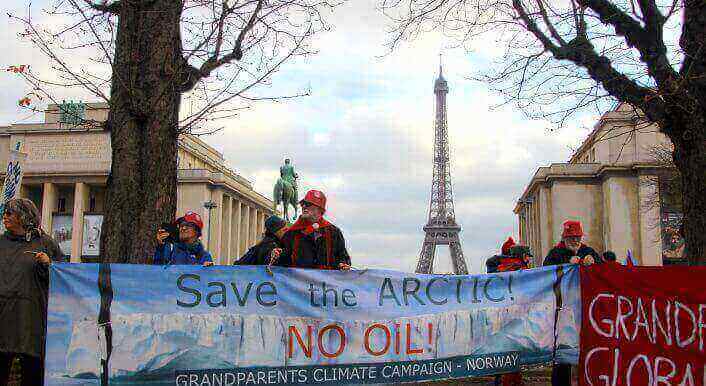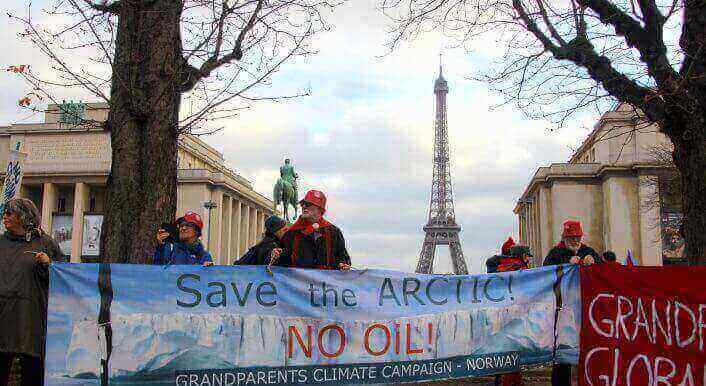Climate change is down to all of us
Comment: Global warming can be stopped, but only if we all reduce our consumption.

Everyone’s talking about climate protection. But barely anyone is talking about the obvious: Climate change will only slow down when each and every citizen on the planet produces less carbon dioxide. Which means changing our habits, when we drive, fly, eat meat or buy a mobile phone.
There is a magic number that everyone should know: to save the world, every single human must cap their CO2 production at 2,000kg. This figure was calculated by climate experts at the UN. But currently every German produces about five times that. It’s a difference that can’t be resolved just by driving an electric car or paying for green electricity. A cap of 2,000kg per person is smaller than it sounds, equating to only around 10,000km of driving per year. And that’s before you include the climate-damaging meat on your plate, heating your apartment in the winter, or booking flights for your next holiday. Having a good life within the cap of 2,000kg of CO2 is entirely possible. But it will have to look a bit different.
As a society we’ve learned to sort our rubbish for recycling and, in countries like Germany, we give back our glass bottles to the shop. But the rest of our lives and actions are not always climate-friendly – partly because no government has ever told their citizens about the UN’s 2,000kg cap. Why? Because the economy would shrink. If everyone drove the same car for 20 years, kept the same sofa until it fell apart, and picked apples from the garden instead of importing them from New Zealand, the gross domestic product would be badly damaged.
According to Canadian author and activist Naomi Klein, the relationship between capitalism and climate protection is poorly understood. Economists have confirmed this: it’s very simple to work out what the carbon dioxide emissions limit must be to stop the earth from warming more than 2C. The calculation is as straightforward as reducing emissions by a four fifth for German for example or two thirs for french peopel, which results in the 2,000kg per person cap. This still means a planet that is 2C hotter, but it prevents any further warming.
Innovation can’t be the only method used to try and reduce emissions. Technological solutions, though promising, can give false hope. Farmers in the 1960s dreamt of growing bananas and tropical fruits in Germany, using heat from nuclear power. In the 1990s it was said that soon genetically modified plants would feed the world. Today, they only grow in up to three per cent of the world’s fields because of their high risks. By the end of the 2000s hydrogen jets were meant to fly. Today that idea is laughed at. Nevertheless, we continue to believe that the coming droughts can be stopped with electric cars and more efficient refrigerators. But despite supposedly being better, German cars now produce more CO2 emissions than in 1990, according to a study by the Federal Environment Agency. Even the latest technology can’t be more carbon neutral than less technology.
And the world’s climate? International groups and industries say it’s important. But these organisations are not omnipotent The first World Climate Conference took place 22 years ago in Berlin. Since then, greenhouse gas emissions have risen consistently to one-and-a-half times their previous level – except for a small dent in the upwards curve which occurred during the global economic crisis in 2008. Technological progress and international negotiations will not be enough to stop climate change.
The obvious solution is to encourage all citizens to take small daily steps to change their lifestyle, rather than expecting a big change every few years. But calls for this solution are rare because economic growth, for the most part, is more important than climate change.
The magic number of 2,000kg is unknown to most people. And so while most Germans feel committed to climate protection, they also buy T-shirts from coal-powered companies in China, and a new mobile phone every few years with parts sourced from an energy-intensive African mine. This is not compatible with climate protection.
We must understand that climate protection will change our lives. We have to change our habits. We must learn to be lustful consumers of carbon neutral products. This is not an impossible contradiction. We have to do something now – before the consequences of unrestrained climate change ruin the planet, and our lives.



